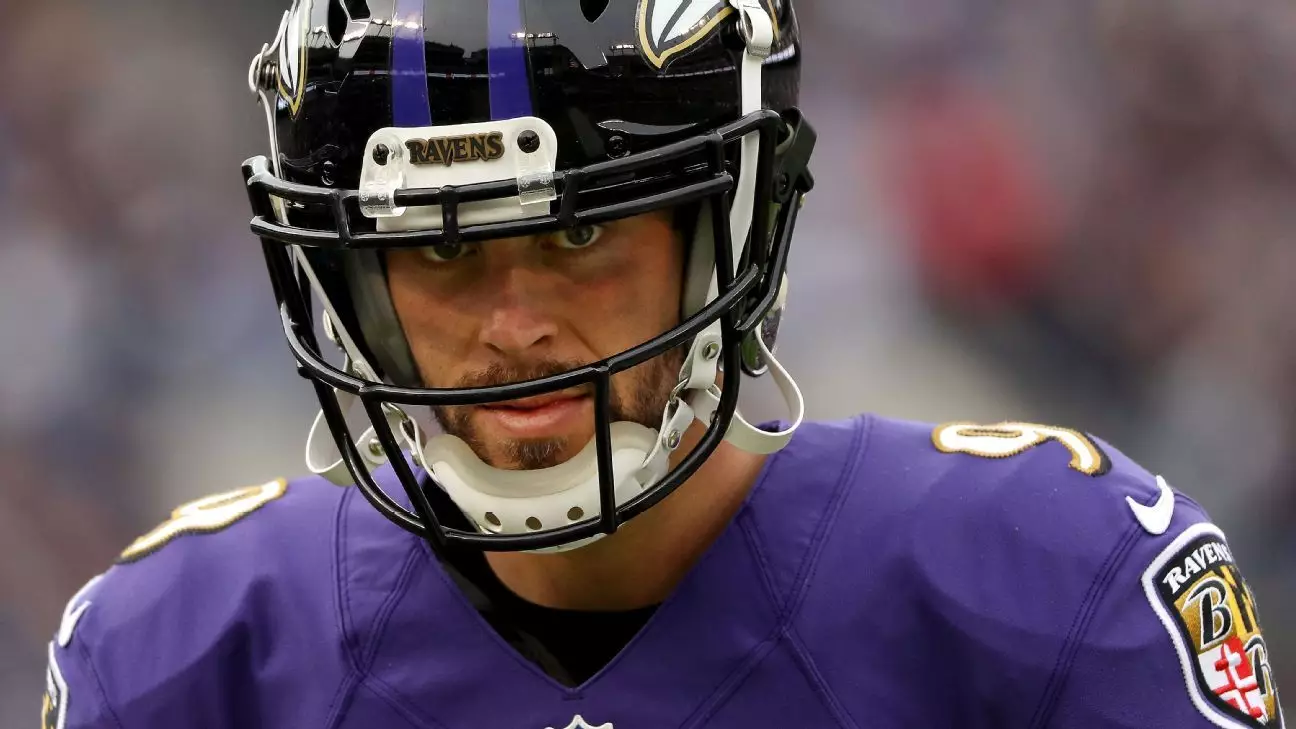The world of professional sports often serves as both a pedestal for athletic achievement and a stage where controversies unfold that can tarnish reputations. Recently, Baltimore Ravens kicker Justin Tucker has found himself at the center of a storm of allegations regarding inappropriate conduct during massage therapy sessions. With multiple women coming forward, the implications extend beyond individual accountability to larger questions about the culture within sports organizations and their response to serious allegations.
Growing Accusations: A Troubling Trend
The latest report reveals that a staggering 16 women have accused Tucker of engaging in sexually inappropriate behavior over sessions spanning from 2012 to 2016. Such a multitude of allegations, emanating from eight different spas, raises alarm bells about not just Tucker’s individual actions, but also the broader implications for the NFL. The nature of these accusations is concerning: descriptions of explicit conduct, including claims of bodily fluids left on tables and inappropriate eye contact, paint a disconcerting picture of the accused.
During a press conference at the Super Bowl, NFL Commissioner Roger Goodell acknowledged the gravity of the situation, emphasizing that “serious issues” are at play. The fact that these allegations surfaced during one of the NFL’s most high-profile events indicates the potential for considerable fallout not only for Tucker but also for the league as a whole. Should these claims be substantiated, they could conflict with the NFL’s personal conduct policy, which mandates standards of behavior for its players.
In a formal rebuttal to the allegations, Tucker’s legal team has termed the claims “unequivocally false.” In a noteworthy statement on social media, Tucker argued that the initial article had distorted interactions to a point of unrecognizability. However, such vehement denial is arguably not enough in the face of mounting evidence. The tone of his defense, which labels the report as “desperate tabloid fodder,” may alienate potential supporters and detractors alike, further complicating public perception.
The Ravens organization itself has also released statements asserting their commitment to investigating the allegations thoroughly. Their zero-tolerance approach, previously highlighted concerning other players’ misconduct, will now be put to the test. Coach John Harbaugh’s previous discussions on similar topics, particularly regarding domestic violence, have set a precedent that the organization may be pressured to uphold regardless of Tucker’s stardom.
Alarmingly, some therapists have recounted fears that may have prevented them from reporting inappropriate behavior in a timely manner. Reports indicate that employees at the spas felt their jobs were at stake, stifling their voices in the face of misconduct. This not only puts Tucker’s actions into question but raises concerns about a larger culture that may enable a lack of accountability.
One of the most disturbing aspects of these allegations is the claim that therapists turned to external reporters in 2015, fearing retaliation if they had gone through official channels. This highlights a pervasive issue in many industries, including sports, where power dynamics often dissuade victims from coming forward. If true, these narratives suggest a systemic failure, both on the part of the accused and the institutional environments that facilitate such behavior.
As this troubling case unfolds, it brings to light critical conversations about accountability, both at an individual and institutional level. At the core of this situation lies a question of morality in sports: how should teams and leagues respond when faced with credible allegations against their most high-profile athletes? The unfolding allegations against Justin Tucker exemplify not just a personal crisis for one player but reflect the wider implications for a sporting culture that must grapple with issues of consent, respect, and professional integrity.
Only time will tell how this incident will affect Tucker’s career and the reputation of the NFL as a whole. What remains undeniable is the necessity for a thorough and transparent investigation that prioritizes the voices of those who have come forward, ensuring that justice prevails. The stakes of this story extend far beyond any single individual, becoming a pivotal moment for the NFL and the ethics of its constituency.

Leave a Reply